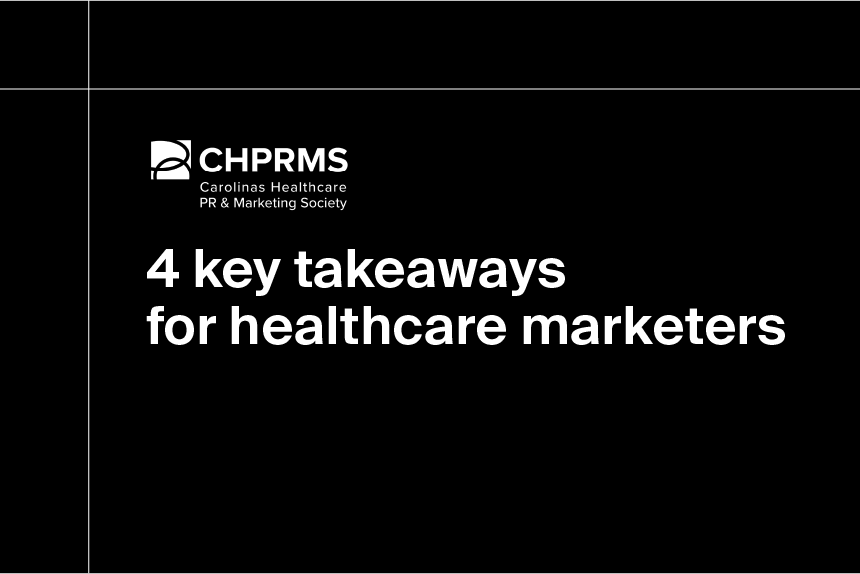The first episode of Definitively Speaking is out now, and it’s full of fascinating insights to unpack.
Definitive Healthcare’s new podcast explores healthcare’s top trends through data-driven conversations with industry thought leaders. Every two weeks, Justin Steinman, our chief marketing officer, talks with an expert guest about what’s happening in the industry and what that means for our listeners.
Michael Greeley, cofounder and general partner at Flare Capital Partners joined Justin as the inaugural guest on Definitively Speaking. Michael shared how data drives his investment strategy, how healthcare today compares to the tech industry 20 years ago, and how the democratization of healthcare impacts everyone.
Let’s look at the four ideas that I found most interesting in the episode.
1. Data helps healthcare tech entrepreneurs get ahead
Who are the companies that stand out in investors’ portfolios? For Michael, it’s those companies who are using data to demonstrate cost-reduction outcomes on shorter time scales than the competition.
There’s a sense of competitive urgency in healthcare today that’s unlike anything he’s seen in 20 years in the industry. The fastest scaling companies—and the ones drawing investors’ attention—are using data to show outcomes and impact within one or two budget cycles, rather than three or four years.
These companies need every available advantage to secure a niche in a market where activity within “the next five years likely defines the next 20 years,” Michael says.
2. Will tomorrow’s healthcare market resemble the tech industry of today?
Michael sees interesting parallels between the tech industry and healthcare—namely, that the companies who capitalize on market disruptions today seem poised to be the dominating players over the next two decades.
Mirroring the situation that search engines and social media organizations faced in the early 2000s, Michael suggests the future Googles and Facebooks of healthcare are small businesses today—but could break out as household names within the next 10-20 years.
Justin takes a slightly contrary opinion. He points out that healthcare’s fragmentated market could prevent it from following the path of the internet, and that no healthcare company could ever turn into a Google-sized behemoth, especially with major players like CVS, HCA Healthcare and Tenet Health already well-known in the market and showing no signs of disappearing anytime soon. But as Michael sees it, relative to market opportunity, the big players of today still have plenty of room to grow.
This was a fascinating debate, and definitely one worth hearing for yourself!
3. COVID is both a disruptive force and technology accelerant
COVID-19 is changing how healthcare works at every level, from the individual consumer to the entire industry. Justin notes that this is exactly the kind of disruptive force that investors keep their eyes on.
Combined with the transition from fee-for-service to value-based care, Michael says it’s no wonder providers and payors are “being forced to do cartwheels” to keep their bearings in the shifting market.
“The system obviously has been forced to be virtual, on-demand, real-time, intelligent, predictive,” says Michael. “We all knew that was inevitable over a couple of decades. [But the industry] has had to do it in a couple of years.”
These forces have driven health systems to adopt novel solutions at an unprecedented pace, leading to the monumental rise of telehealth in such a short period.
4. Do retailers have what it takes to provide primary care?
Retail clinics like CVS and Walgreens have been instrumental in vaccinating the American public during COVID-19. Some have even seized on the growing demand for more accessible care by offering annual physicals and telehealth appointments. But are consumers ready to accept the local pharmacy as their primary point of care?
Michael points out that labor retention issues among retailers could be an obstacle for patients seeking a long-term care relationship with their PCP. Plus, most retailers’ facilities aren’t designed to accommodate the amenities necessary to provide full-service primary care.
Instead, he sees retailers focusing on specialty services and episodic care, highlighting CVS’ recent activity in the home infusion space.
Justin highlights a generational component to the issue: Older patients might be discouraged by the nontraditional approach, but younger, more tech-savvy patients could see retail clinics as more accessible, convenient options better suited to their busy lifestyles.
Of course, there’s a catch. Michael notes that as younger generations gravitate toward tech and care options that empower them to take ownership of their health outcomes, they may find themselves disconnected from the experts best suited to identify and help navigate more complex health concerns.
Learn more
I really enjoyed this podcast, and I’m sure you will too. I’m an avid podcast listener, but I’ve never heard anything quite like this! If you’re a fan of deep-diving conversations and want to learn more about the healthcare market, I know you’ll enjoy Definitively Speaking as much as I did.
I hope that you’ll choose to subscribe and listen to Definitively Speaking every other week on your favorite audio streaming service, or get it right here at definitivehc.com.
In our next episode, Justin is joined by Definitive Healthcare’s Todd Bellemare, VP of professional services, and Brittany Morin-Mezzadri, solutions engineer, to dig deeper into the topics discussed in Episode 1. They talk about generational differences in patient behavior, balancing convenience and privacy, and the way decentralization shapes access to care.
Want access to the data, analytics and expertise behind this episode? Schedule a free trial today and see how healthcare commercial intelligence can help you make business decisions quickly and confidently.







